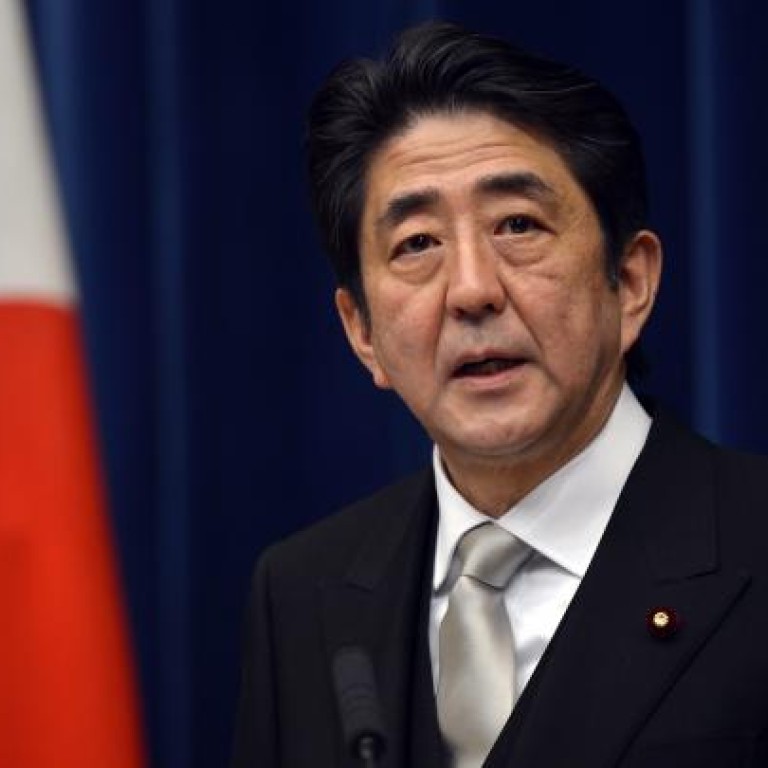
Japan just a caretaker, not owner, of islands in East China Sea
I refer to Japanese Prime Minister Shinzo Abe's pre- and post-election remarks about the Senkaku/Diaoyu Islands, including the comment that they are "inherent Japanese territory" ("Abe 'in no doubt' about islands row", December 17).
He said his government would not give a millimetre in the dispute with China over these islands, and wants to amend the non-aggression clause in Japan's constitution and give the Self-Defence Forces military status.
Mr Abe made such fiery remarks not only to help him win the general election, given the rise of extreme nationalist factions, but also as an expression of his own belief in the concept of [the warrior's code of honour]
He said he regretted having missed out on the annual visit to the [controversial] Yasukuni shrine [which honours Japan's war dead, including war criminals] during the one year he was last prime minister, in 2007.
Of course, such rhetoric helps divert the attention of Japanese citizens from the fact that the country is in dire economic straits. Politically, it is also in a state of flux; Abe is the seventh prime minister in 6-1/2 years.
However, Abe's argument is wrong, and it is most worrying in light of the increasing air and sea encounters by patrols from both sides around these islands.
It is hoped that during Abe's visit to the United States, he will be put right and the patrols will remain unarmed.
It is hard to find justification for the "inherent Japanese territory" claim and the consequent stand by Tokyo to defend its sovereign territory.
The Cairo and Potsdam declarations and the San Francisco peace treaty wiped the slate clean regarding the ownership and control of these islands, requiring Japan to relinquish ownership and control of them.
What the Japanese could justifiably say is that the US handed over the administration of these islands to Japan in 1972. And as long as the Japanese administration is there, it has the duty to prevent the unauthorised entry of air and marine craft as well as personnel into the territorial waters - and on the soil - of these islands.
However, while the Japanese have been doing the right thing driving out trespassers, they have done so based on the wrong premise that the islands are Japanese territory.

